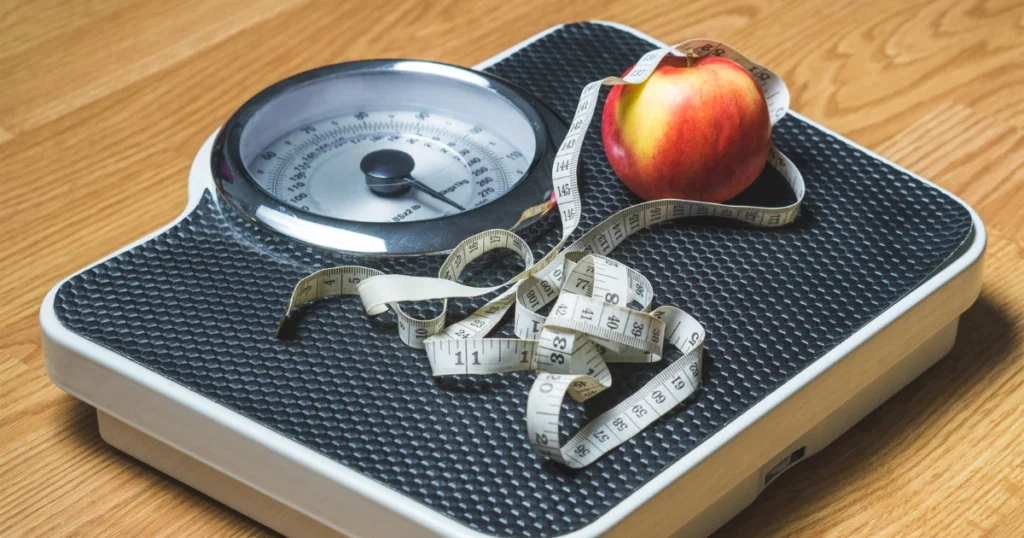Why Talk About Weight Gain in Lupus?

A Brief Overview of Lupus
Lupus is a chronic autoimmune disease where the body’s immune system mistakenly attacks its own tissues and organs. This can lead to inflammation and damage in different parts of the body, including the skin, joints, kidneys, heart, and brain. The most common type is systemic lupus erythematosus (SLE).
Lupus mostly affects women, especially between the ages of 15 and 45. Although the cause of lupus is not fully understood, a mix of genetics, hormones, and environmental triggers seem to play a role.
Why Weight Gain Is a Concern for Many Lupus Patients
Many people associate lupus with weight loss due to inflammation or digestive issues. However, weight gain is just as common, especially for those on medication or experiencing long-term symptoms.
Gaining weight can add extra pressure to joints, worsen fatigue, and increase the risk of heart disease and diabetes—conditions that lupus patients are already more vulnerable to. That’s why understanding and managing weight gain is so important for people with lupus.
Importance of Managing Weight for Overall Health
Maintaining a healthy weight helps reduce inflammation, improve energy levels, and protect the heart. For lupus patients, it can also mean fewer flares, less joint pain, and better emotional well-being.
When lupus is already a full-time job to manage, extra weight can make it harder. That’s why it’s crucial to explore the reasons behind weight gain and find ways to manage it without making the lupus symptoms worse.
What Is Lupus and How Does It Affect the Body?
Lupus as an Autoimmune Disease
In autoimmune diseases like lupus, the immune system cannot tell the difference between healthy tissue and foreign invaders like bacteria or viruses. As a result, it attacks healthy tissues, leading to inflammation, swelling, and damage.
This immune dysfunction can affect nearly every system in the body. While symptoms vary from person to person, the unpredictable nature of lupus can make daily life challenging.
Common Symptoms and Complications
- Fatigue
- Joint pain and stiffness
- Skin rashes (especially the butterfly-shaped rash on the face)
- Fever
- Swelling in the hands, feet, or around the eyes
- Chest pain when taking deep breaths
- Hair loss
- Sensitivity to sunlight
Lupus can also cause serious complications, including kidney disease (lupus nephritis), heart problems, lung inflammation, and neurological issues.
How Lupus Affects Metabolism and Energy
Because lupus causes widespread inflammation and fatigue, the body often uses more energy to function normally. At the same time, pain and tiredness can make physical activity hard, leading to a slower metabolism and weight gain.
Also, many lupus treatments can influence the body’s hormonal balance and fluid retention, which can further affect metabolism and appetite.
Is Weight Gain Common with Lupus?

Real-Life Experiences and Data
Although lupus is often associated with weight loss, studies and patient experiences show that weight gain is a significant issue. Research suggests that up to 50% of lupus patients experience weight gain at some point.
This can happen gradually over time or more quickly due to changes in medication, lifestyle, or disease activity.
Why Some People with Lupus Gain Weight
Several factors can contribute to weight gain in lupus patients:
- Long-term use of corticosteroids
- Less physical activity due to pain or fatigue
- Hormonal shifts and slowed metabolism
- Emotional eating due to stress, depression, or anxiety
Factors That Make Weight Gain More Likely
Some lupus patients are more prone to gaining weight due to:
- Being on high doses of steroids for extended periods
- Having lupus-related kidney or thyroid problems
- Living with ongoing joint pain or swelling
- Experiencing frequent flares that limit movement
Top Reasons for Weight Gain in People with Lupus
Medication Side Effects
Corticosteroids, such as prednisone, are often used to reduce inflammation in lupus patients. These drugs can:
- Increase appetite
- Cause the body to retain sodium, leading to water retention
- Disrupt normal fat storage, especially around the face and abdomen
Reduced Physical Activity
Joint pain, stiffness, and fatigue make it hard for many lupus patients to stay physically active. Lack of movement can lead to muscle loss and a slower metabolism, which causes weight gain over time.
Changes in Appetite and Fluid Retention
Lupus and its treatments can cause sudden shifts in appetite. Some people may feel hungry all the time, while others might overeat to cope with emotional stress. Medications can also cause the body to hold onto fluid, which increases weight and puffiness.
Hormonal Imbalances and Inflammation
Chronic inflammation in lupus can disrupt the body’s hormonal balance. Hormones like cortisol, insulin, and thyroid hormones may become unbalanced, leading to fat storage, insulin resistance, and weight gain.
Here’s a table summarizing the top reasons for weight gain in lupus:
| Reason | Description |
|---|---|
| Corticosteroid Medication | Increases appetite, causes fluid retention, and changes fat distribution |
| Fatigue and Joint Pain | Makes it hard to exercise, leading to slower metabolism |
| Emotional Stress | May cause overeating or reliance on comfort food |
| Hormonal Changes | Affects metabolism, insulin response, and fat storage |
| Reduced Physical Activity | Less calorie burning leads to gradual weight gain |
Medications and Their Role in Weight Gain
Common Lupus Medications That May Cause Weight Gain
Some of the most common medications prescribed to treat lupus include:
- Prednisone (a corticosteroid): Known for causing weight gain, especially when used long term.
- Hydroxychloroquine (Plaquenil): Less likely to cause weight gain, but may affect appetite in some.
- Immunosuppressants (e.g., azathioprine, mycophenolate): Generally not associated with weight gain, but they may still indirectly contribute if they reduce activity levels due to side effects.
How These Drugs Affect the Body
Corticosteroids like prednisone work by reducing inflammation. But they also:
- Increase appetite
- Make the body hold onto salt and water
- Cause fat to be stored in unusual places (face, back of neck, abdomen)
These effects are more noticeable the higher the dose and the longer you take them. Even lower doses over long periods can lead to gradual weight gain.
Tips for Discussing Side Effects with Your Doctor
If you’re worried about weight gain from lupus medications, here are some helpful tips:
- Be honest: Let your doctor know how the medication is affecting your weight and how you feel about it.
- Ask about alternatives: Sometimes, a different drug or a lower dose may work just as well.
- Request support: A referral to a dietitian, physical therapist, or support group can be helpful.
- Don’t stop medication on your own: Always talk to your doctor before making changes to your treatment.
Lupus Flares and Weight Fluctuations

What Is a Flare and How It Impacts Weight
A lupus flare is a period when symptoms suddenly become worse. These flares can come on quickly and cause intense fatigue, joint pain, swelling, rashes, and fever. During a flare, many people find it difficult to stay active, which can reduce calorie burning and lead to weight gain.
Some people may also gain weight due to increased fluid retention, changes in medication, or stress-related eating. On the flip side, a severe flare might cause a loss of appetite, resulting in weight loss. These ups and downs make weight management in lupus even more complicated.
Managing Flares to Reduce Weight Changes
The best way to reduce weight fluctuations is to prevent or limit flares whenever possible. Here are some helpful tips:
- Take medication consistently: Skipping doses can trigger flares.
- Get enough rest: Sleep helps reduce inflammation.
- Listen to your body: Don’t push through pain or fatigue.
- Avoid known triggers: These may include sunlight, stress, or certain foods.
Keeping a symptom diary may help identify flare patterns so you and your doctor can adjust treatment early.
Emotional Eating and Stress During Flares
Flares are not just physically painful—they can also be emotionally draining. It’s common to feel stressed, frustrated, or even depressed during these episodes. These emotions can lead to emotional eating, especially cravings for high-sugar or high-fat comfort foods.
Creating healthier ways to cope with stress—like journaling, meditation, or talking with a friend—can help reduce the urge to eat for comfort.
Emotional and Mental Health Impact
Depression, Anxiety, and Weight Gain
Living with lupus can take a toll on mental health. The unpredictable nature of symptoms, chronic pain, and fatigue can lead to feelings of sadness or anxiety. Depression can make it hard to stay active or eat healthy, while anxiety may trigger overeating or under-eating.
Studies have shown that people with chronic illnesses like lupus are more likely to experience depression, which can affect their ability to manage weight.
How to Cope Emotionally with Body Changes
Weight changes, especially rapid gain, can be emotionally difficult. You might not feel like yourself anymore, and clothes may not fit the same. This emotional distress is valid and common.
Here are a few ways to support yourself emotionally:
- Practice self-compassion: Remind yourself your body is doing its best to fight a tough illness.
- Focus on progress, not perfection: Small steps matter.
- Celebrate non-scale victories: Like increased energy or better sleep.
Importance of Support Systems and Counseling
Having someone to talk to can make a big difference. Whether it’s a friend, support group, or therapist, being heard and understood helps lighten the emotional load.
Mental health counseling is especially helpful for developing coping strategies. Therapists can help you process feelings about weight, illness, and self-image in a healthy, constructive way.
Healthy Ways to Manage Weight with Lupus
Safe Exercise Options for People with Lupus
Exercise is important, but it must be gentle and consistent. Pushing too hard can worsen symptoms. Here are safe options:
- Walking: Low impact and can be done at your own pace
- Yoga or stretching: Helps improve flexibility and reduce stiffness
- Swimming: Gentle on joints while offering a full-body workout
- Tai Chi: Combines movement with mindfulness
Always consult your doctor before starting a new exercise routine, and listen to your body’s signals.
Anti-Inflammatory and Balanced Diets
A healthy diet can help reduce inflammation and support energy levels. Anti-inflammatory foods include:
- Leafy greens (spinach, kale)
- Berries
- Fatty fish (like salmon)
- Olive oil
- Nuts and seeds
A balanced diet should include:
- Lean proteins (chicken, tofu, legumes)
- Whole grains (brown rice, oats)
- Fresh fruits and vegetables
- Limited processed foods and sugars
Hydration and Rest
Drinking enough water helps with joint health, energy, and flushing toxins from the body. Aim for at least 8 cups per day unless your doctor says otherwise.
Sleep is equally important. Quality rest helps your body repair itself and reduces stress hormones that can lead to weight gain.
Foods to Focus On and Foods to Avoid

Nutrient-Rich Foods That Support Lupus Management
Eating the right foods can help manage lupus symptoms and prevent weight gain. Focus on:
- High-fiber vegetables (broccoli, carrots, leafy greens)
- Lean proteins (chicken, turkey, legumes)
- Omega-3 fats (flaxseed, chia seeds, walnuts)
- Antioxidant-rich fruits (blueberries, oranges)
- Low-fat dairy or dairy alternatives
Ingredients That Can Trigger Inflammation or Bloating
Some foods can make lupus symptoms worse or add to weight problems:
- Processed meats (bacon, sausage)
- Foods high in added sugar (soda, candy)
- Refined grains (white bread, pastries)
- Excessive salt (can cause water retention)
- Saturated and trans fats (fried foods, margarine)
Sample Grocery List or Meal Ideas
Here’s a simple grocery list to support a lupus-friendly, weight-conscious diet:
Fruits & Vegetables:
- Spinach
- Kale
- Blueberries
- Apples
- Carrots
- Zucchini
Proteins:
- Chicken breast
- Canned tuna in water
- Lentils
- Eggs
Grains:
- Brown rice
- Quinoa
- Whole wheat bread
Healthy Fats:
- Olive oil
- Avocados
- Walnuts
Meal Idea: Grilled chicken with quinoa and roasted vegetables + a side of mixed berries
Working with a Healthcare Team
Building a Care Plan
Managing weight with lupus is not something you have to do alone. A healthcare team can help you create a personalized plan that includes:
- Nutrition guidance from a dietitian
- Safe exercise advice from a physical therapist
- Medication management by your doctor
- Emotional support from a counselor
This team-based approach helps address both the physical and emotional sides of lupus.
Questions to Ask About Weight and Lupus Treatment
- Can my current medications cause weight gain?
- Are there alternative treatments with fewer side effects?
- What type of diet is best for lupus?
- Can I get help from a dietitian or therapist?
- How can I safely exercise with my symptoms?
Tracking Your Progress
Keeping track of your health habits and symptoms can be empowering. Use a notebook or app to record:
- Daily meals
- Physical activity
- Flare symptoms
- Sleep patterns
- Weight changes
This information can help your healthcare team adjust your treatment and keep you on track.
When to Be Concerned About Weight Gain
Signs That Weight Gain May Signal Another Issue
Not all weight gain in lupus is harmless or expected. Sometimes, it can be a sign of other problems. If you notice sudden or rapid weight gain, or if your clothes start to feel tighter without a clear reason, it might be time to pay closer attention.
Be especially mindful if you experience:
- Swelling in your legs, ankles, or feet
- Shortness of breath
- Trouble sleeping while lying flat
- Unusual fatigue or weakness
- A noticeably rounder face or increased fat around the abdomen
These could be signs of fluid retention, kidney issues, or side effects from medication.
When to Seek Medical Advice
It’s important to talk to your doctor if:
- You gain more than 5–10 pounds in a short time
- You feel unwell or notice new symptoms
- You suspect your medication is causing weight changes
- Your weight gain is affecting your mental or emotional well-being
Early intervention can prevent bigger problems later. Don’t wait—your doctor can help determine if the weight gain is from lupus, medications, or another health condition.
Long-Term Risks of Unmanaged Weight in Lupus Patients
Carrying extra weight can increase the risk of other health issues, especially for those with lupus. These risks include:
- High blood pressure
- Type 2 diabetes
- Heart disease
- Increased joint pain and pressure
- Sleep apnea
- Reduced effectiveness of lupus medications
By addressing weight gain early and with care, you can reduce these risks and improve your overall quality of life.
Real Stories: Coping with Lupus and Weight Changes
Personal Accounts from People Living with Lupus
Hearing from others who are going through the same journey can be incredibly uplifting. Here are some real stories from people living with lupus:
Maya, 29: “When I was first diagnosed, I lost a lot of weight. But once I started prednisone, I gained nearly 30 pounds in six months. It made me feel like a stranger in my own body. Joining a lupus support group really helped me feel seen and understood.”
Daniel, 42: “My weight went up and down for years. What finally helped was meal prepping and finding a physical therapist who understood lupus. I still have hard days, but I know I’m doing the best I can.”
Nina, 35: “I used to feel guilty about gaining weight. But I’ve learned to be kind to myself. Lupus is tough, and so am I. Now, I focus on energy and strength, not just the number on the scale.”
Tips They’ve Found Helpful
From these stories, here are some tips others have found helpful:
- Keep a journal to track food, symptoms, and moods
- Prep simple, anti-inflammatory meals ahead of time
- Find joyful ways to move your body
- Connect with others online or in-person who understand
- Speak kindly to yourself—your body is working hard
Encouraging Messages for Others
- “You are not defined by your weight.”
- “Your body is strong and doing the best it can.”
- “You deserve support, love, and compassion.”
- “Every step, no matter how small, counts.”
- “You are not alone. We’re in this together.”
Conclusion: You Are Not Alone in This Journey
Encouragement to Take Control with Small Steps
Managing lupus and weight gain can feel overwhelming, but you don’t have to do it all at once. Even small changes—like adding more vegetables to your plate, going for a short walk, or drinking more water—can make a big difference over time.
Every effort you make is a step forward, and those steps add up.
Reminder of the Importance of Self-Care
Self-care isn’t selfish—it’s essential. Whether it’s taking your medication on time, getting enough rest, talking to a counselor, or saying no to things that drain you, you’re allowed to put your health first.
Give yourself grace. You’re facing a challenging illness, and every day you show up and try is a victory.
Final Words of Hope and Support
Weight gain with lupus is common, but it’s not something you have to accept without action. You have options, support, and strength. Keep learning, stay connected, and trust yourself.
You are more than your symptoms, and you are never alone on this journey.
We see you. We support you. And we believe in your ability to thrive—one step at a time.